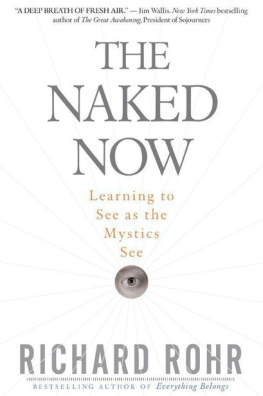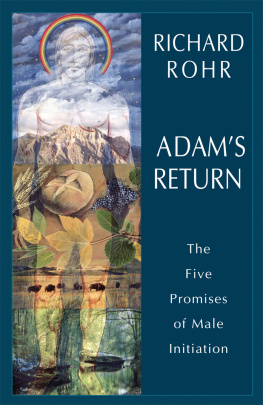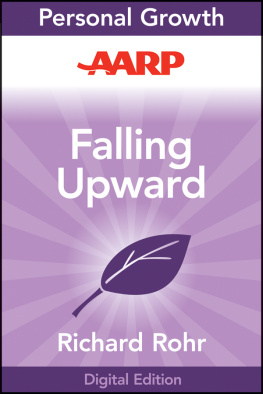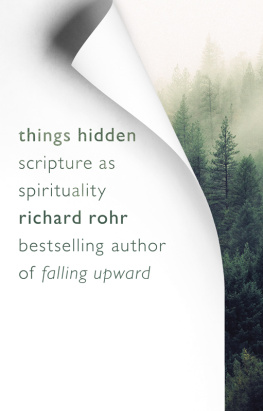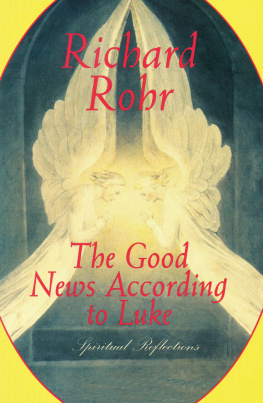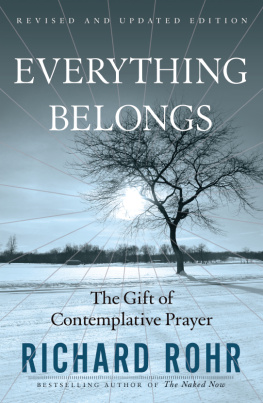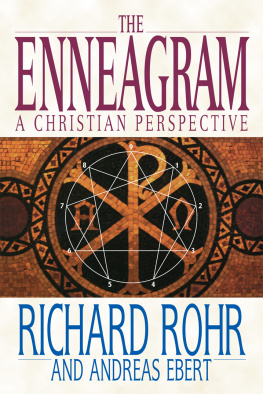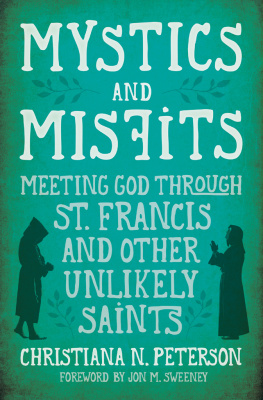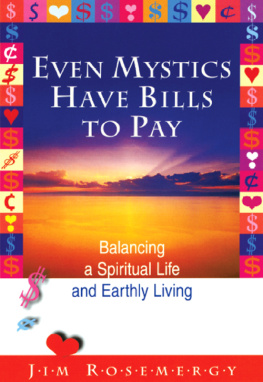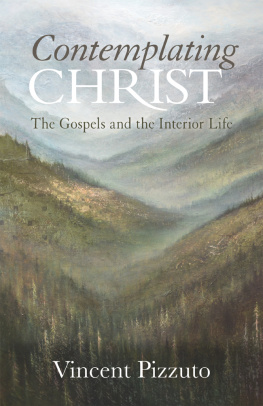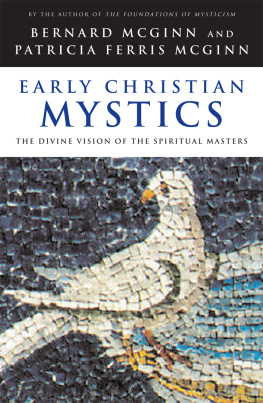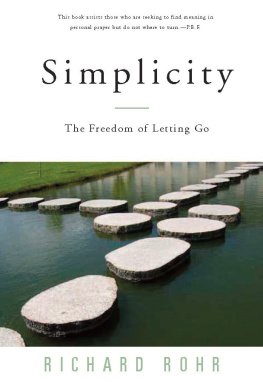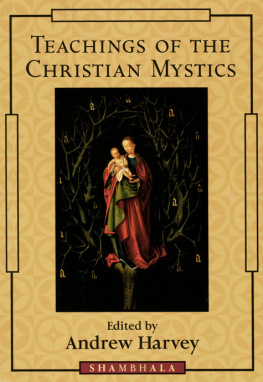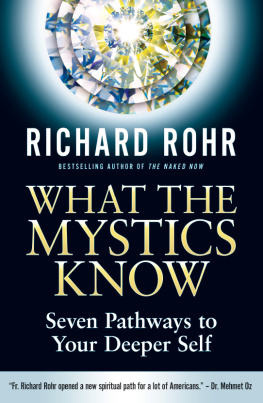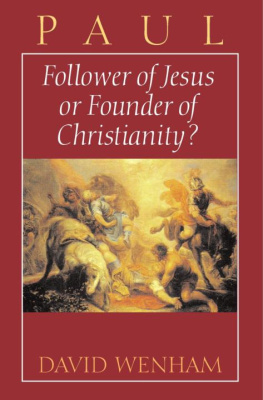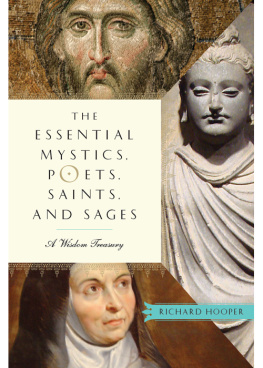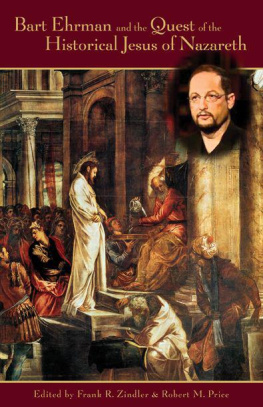There are two trees in the middle of the garden, the tree of life and the tree of the knowledge of good and evil.
Genesis 2:9
The Crossroad Publishing Company
www.crossroadpublishing.com
2009 by Richard Rohr
Crossroad, Herder & Herder, and the crossed C logo/colophon are trademarks of The Crossroad Publishing Company.
All rights reserved. No part of this book may be copied, scanned, reproduced in any way, or stored in a retrieval system, or transmitted, in any form or by any means, electronic, mechanical, photocopying, recording, or otherwise, without the written permission of The Crossroad Publishing Company. For permission please write to .
In continuation of our 200-year tradition of independent publishing, The Crossroad Publishing Company proudly offers a variety of books with strong, original voices and diverse perspectives. The viewpoints expressed in our books are not necessarily those of The Crossroad Publishing Company, any of its imprints, or of its employees. No claims are made or responsibility assumed for any health or other benefits.
Library of Congress Cataloging-in-Publication Data available from the Library of Congress.
ISBN: 9780824520625
EPUB ISBN: 9780824520625
MOBI ISBN: 9780824520625
Books published by The Crossroad Publishing Company may be purchased at special quantity discount rates for classes and institutional use. For information, please email .
Printed in the United States of America
Contents
Preface:
Why I Am Writing This Book
Appendices
PRACTICING THE NAKED NOW
PREFACE
Why I Am Writing This Book
No man can say his eyes have had enough of seeing, his ears their fill of hearing.
E CCLESIASTES 1:8
I am a man born between ages, moving between cultures, seeing between religions, but also happily a Christian. I love what I see: life excites me. Yet I know there is still so much more to see and hear, so much more to know and do. This seeing is also painful, and there are things I wish I did not see, or did not know.
I was born in the middle of Middle America, Kansas, in the middle of the Great War (1943), into a German Catholic family with deeply conservative farm roots, and yet I was sent to be educated into a much larger, rapidly changing and reforming world of the 1960s. Vatican Council II tried to reform Catholicism; the therapeutic movement tried to reform the psyche; and the War Against Poverty and the civil rights and antiwar movements tried to reform America.
I have been told that I have a fixation for trying to see almost all things as both/and or as a collision of opposites. It feels as though it is written in my genes my worst mistakes come from not self-balancing. If you believe in astrological signs, I was born on the cusp of Pisces, where the two fish move in opposite directions, on the day between winter and spring, in the year in which the Resurrection was celebrated on its latest possible date. I am always waiting for Easter, but surely expecting it too. I was ordained in a Catholic Church on the very site of Stones Folly in Topeka, Kansas, seventy years after they began speaking in tongues at that spot in 1900. I was always happily Catholic but curiously Protestant and Pentecostal. I knew early on that there were different kinds of knowing. Words divided reality between either and or, but my living experience was always both-and.
I can survive only by trying to build bridges, both affirming and also denying most of my own ideas and those of others. Most people tend to see me as highly progressive, yet I would say I am, in fact, a values conservative and a process liberal. I believe in justice, truth, follow-through, honesty, personal and financial responsibility, faithful love, and humility all deeply traditional values. Yet, in my view, you need to be imaginative, radical, dialogical, and even countercultural to live these values at any depth. Whether in church life or politics, neither conservatives nor liberals are doing this very well today. Both are too dualistic they do not think or see like the mystics.
I am formed by twentieth-century American culture, for good and for ill, by Catholic theology, for good and for ill, and by the wisdom traditions of the Native and world religions especially Franciscanism, which has been largely for the good. It is that perennial philosophy, as Aldous Huxley called it, that I hope to draw upon in this book, along with insights from developmental psychology, theology, philosophy, history, the mystics of all religions, community-building experiences, and the giving and receiving of spiritual direction.
Primarily I am concerned here with why people do not see very well and how we perhaps can. What is it that keeps us humans from reading reality truthfully, humbly, and helpfully? Why do we including people at the highest levels of church, education, and state appear to be so imprisoned in ourselves? In effect, why have the world religions stopped doing their job of spiritually transforming people and cultures? Why have we told people they must believe in God in order to experience God, when God is clearly at work in ways that many eyes have not seen, nor ears have heard, nor has it entered into our minds (1 Corinthians 2:9)?
Along with the resources already mentioned, I will draw upon my own journey of trying to see myself and my world honestly, more lovingly, and in ever broader and less self-serving frames. Much of what I see comes from my own mistakes too numerous to count. Failure, sin, humiliation, and shadow work are very good teachers if we allow them to be. I present this investigation in a series of ways, including reflections, stories, sayings, interpretations from Hebrew and Christian Scriptures, and finally concrete practices. This book can be read from cover to cover, but you may also prefer to read one section at a time and reflect on how the message relates to your own seeing. Pick a chapter heading that seems to speak to you, because many of them can stand alone.
All of the issues above have led me to the overall message in this book:
A LL SAYING MUST BE BALANCED BY UNSAYING , and knowing must be humbled by unknowing. Without this balance, religion invariably becomes arrogant, exclusionary, and even violent.
A LL LIGHT MUST BE INFORMED BY DARKNESS , and all success by suffering. St. John of the Cross called this Luminous Darkness, St. Augustine, the Paschal Mystery or the necessary Passover, and Catholics proclaim it loudly as the mystery of faith at every Eucharist. Yet it is seldom an axiom at the heart of our lives.
The early but learned pattern of dualistic thinking can get us only so far; so all religions at the more mature levels have discovered another software for processing the really big questions, like death, love, infinity, suffering, and God. Many of us call this access contemplation. It is a nondualistic way of seeing the moment. Originally, the word was simply prayer.
It is living in the naked now, the sacrament of the present moment, that will teach us how to actually experience our experiences, whether good, bad, or ugly, and how to let them transform us. Words by themselves will invariably divide the moment; pure presence lets it be what it is, as it is.
When you can be present, you will know the Real Presence. I promise you this is true.
And it is almost that simple.
March 20, 2008
Holy Thursday
THE NAKED NOW
PART ONE
CHAPTER ONE
The Gift Is Already Given
Our hope is not deceptive. The love of God has been poured into our hearts by the Holy Spirit that has been given to us
Next page
